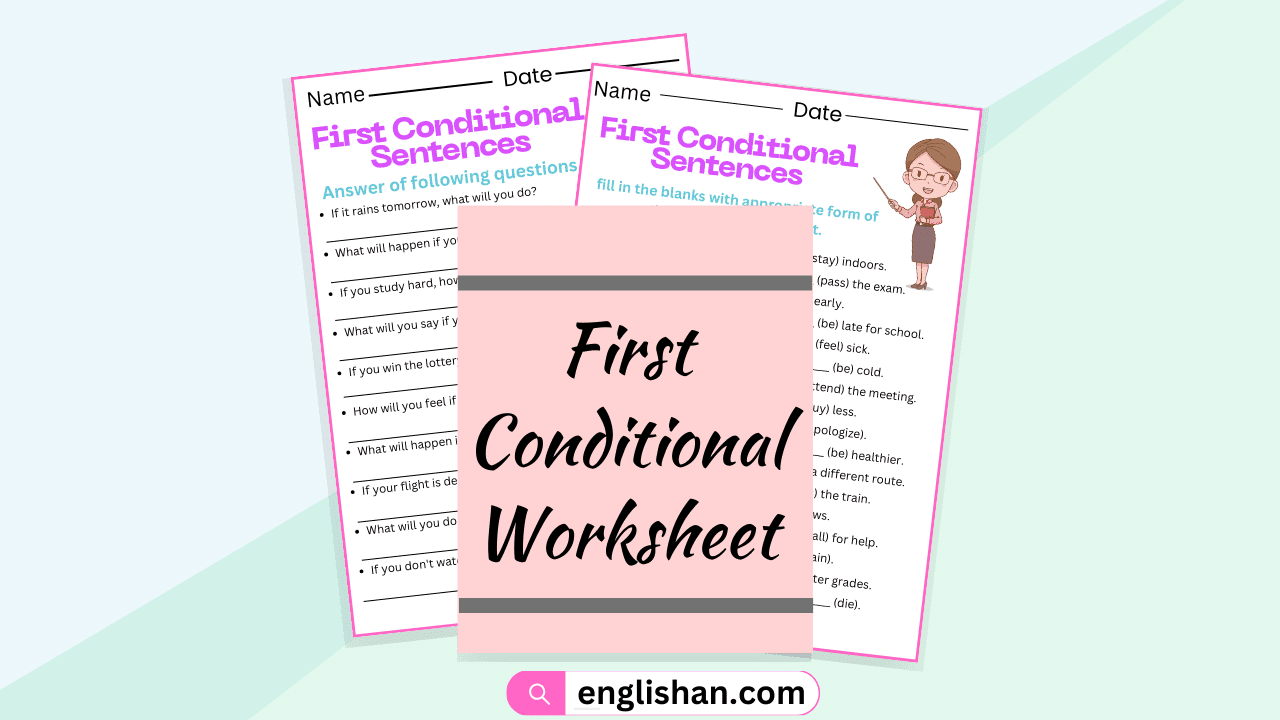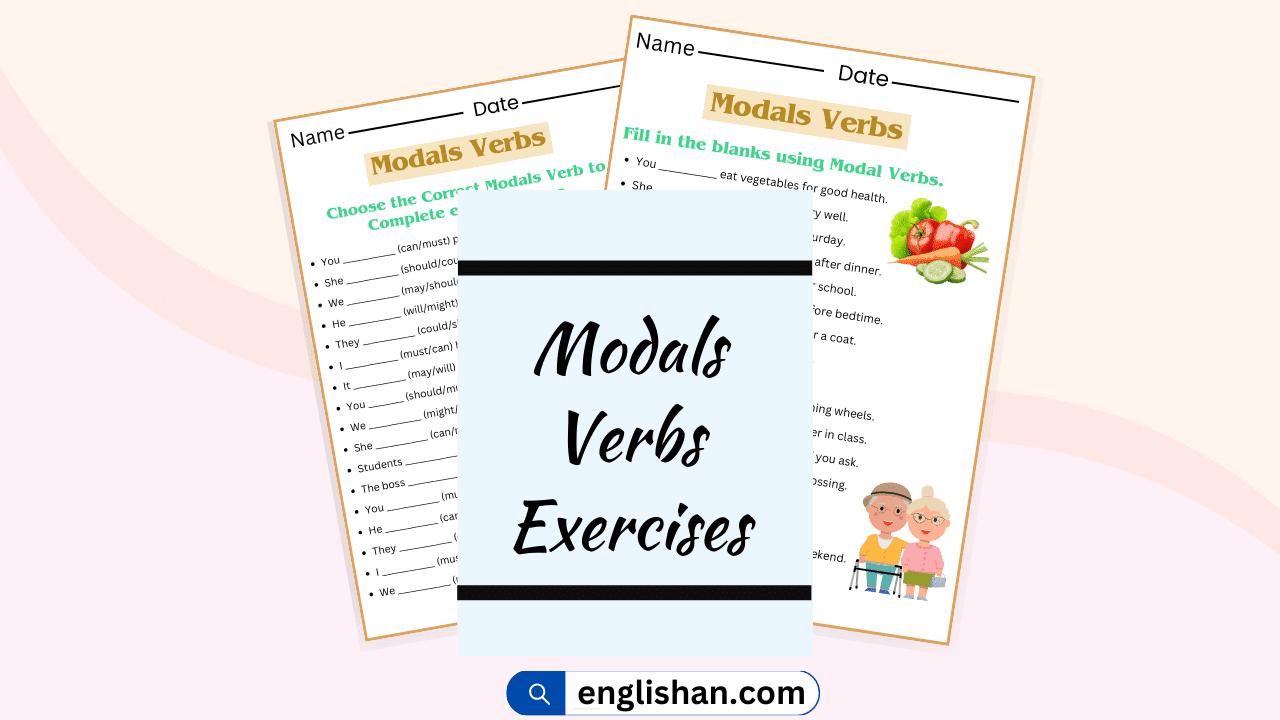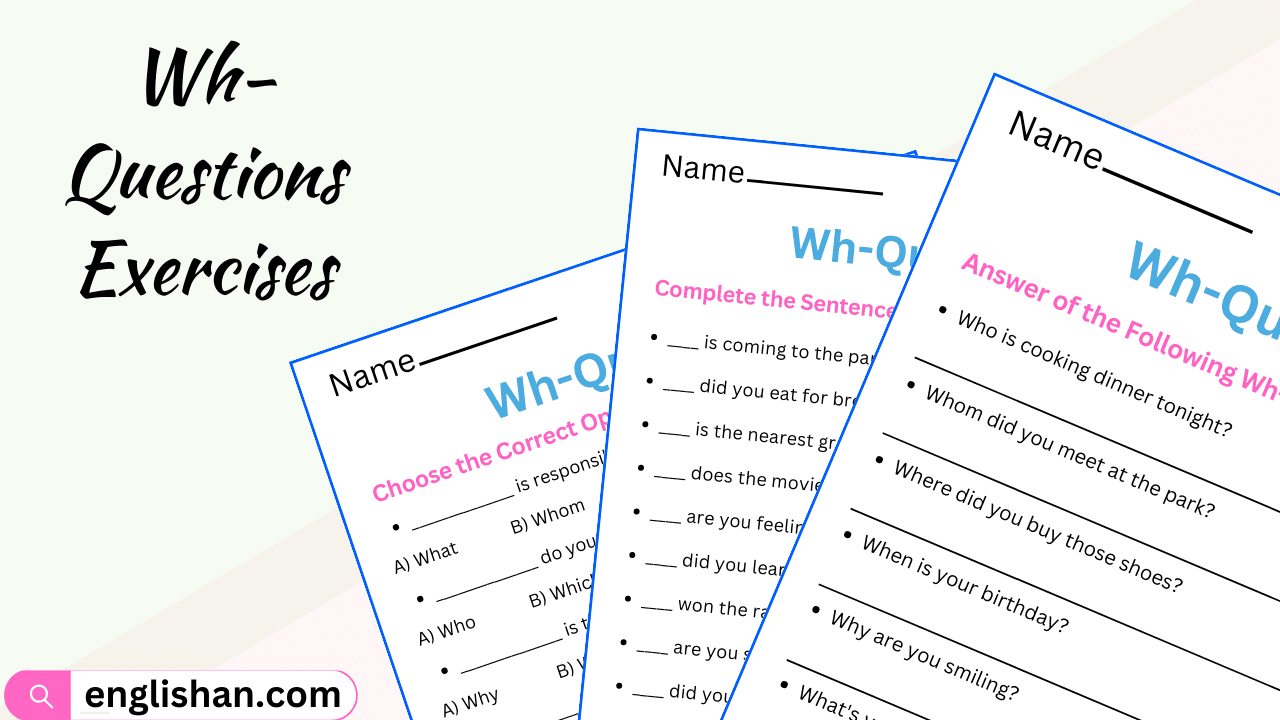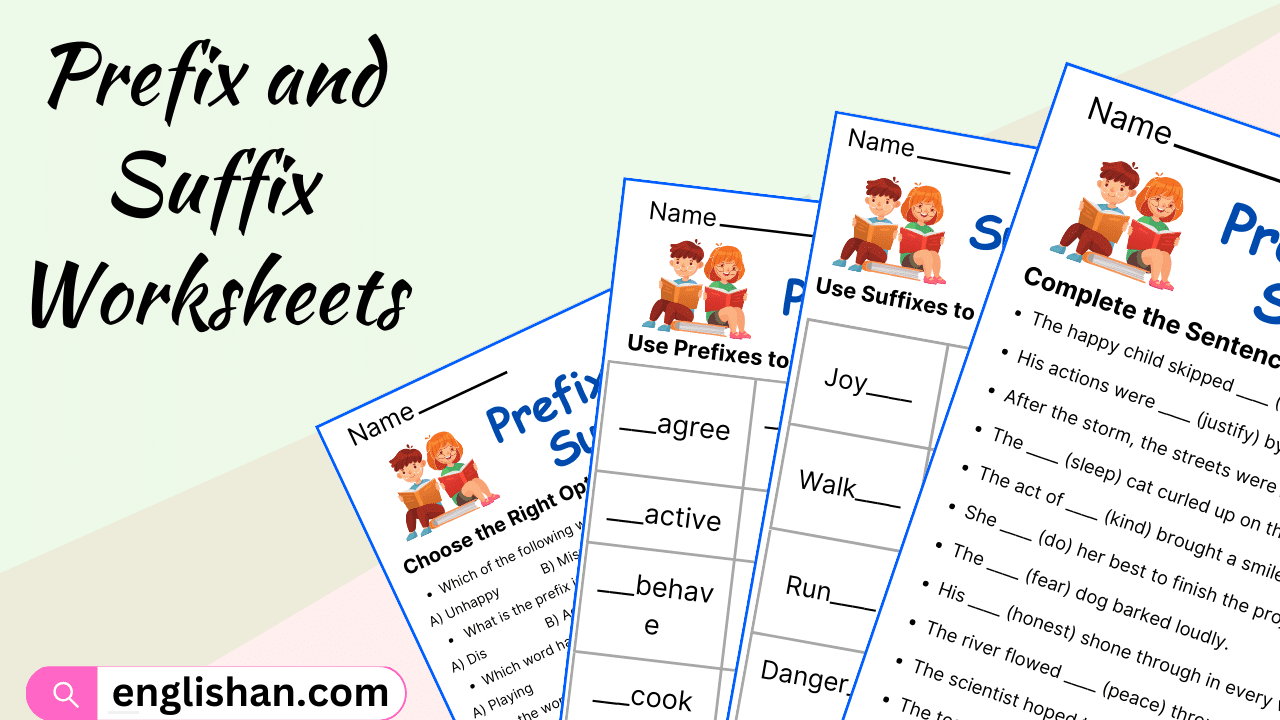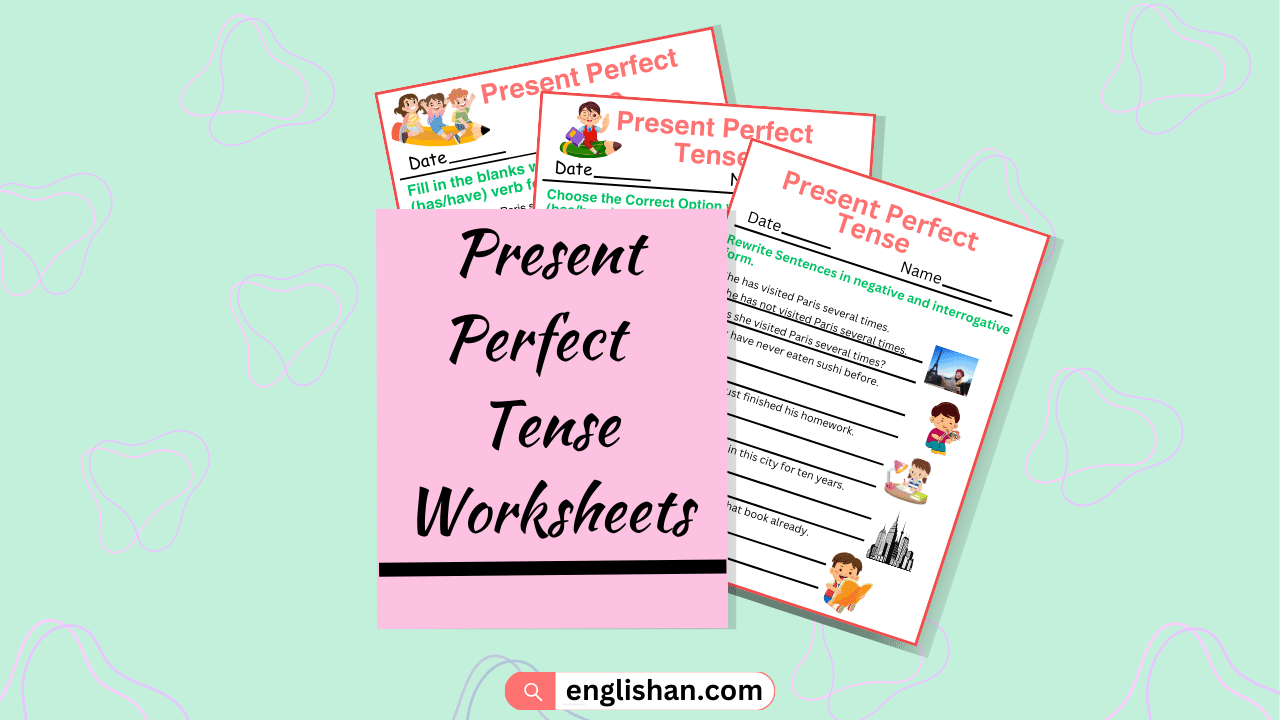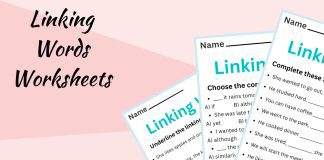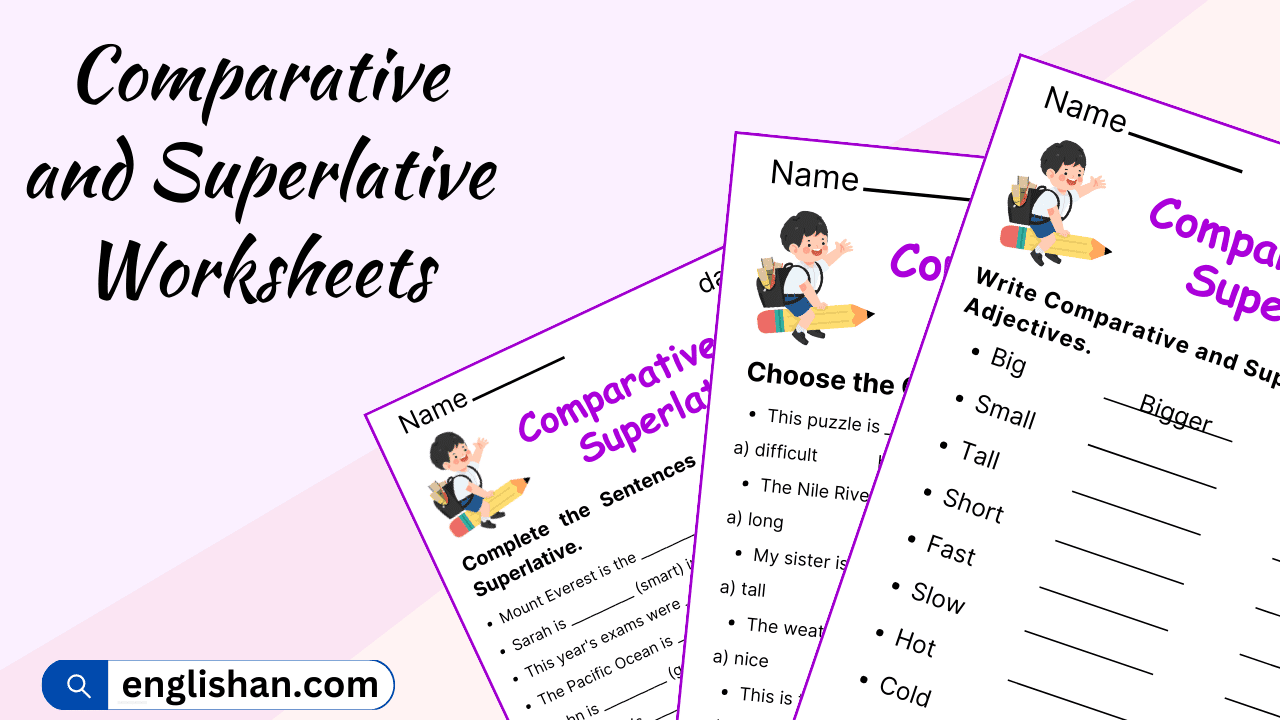Contents
First Conditional Worksheets are great for learning English. They help you understand ‘if-then’ sentences. These worksheets make it easy to learn how to talk about possible future events. When you use First Conditional Worksheets, you get better at saying what might happen if something else happens first. Teachers use these worksheets to make learning fun and effective. They are a key part of learning English. Using these worksheets makes understanding and using English easier, especially for new learners.
First Conditional Worksheets
Worksheet 1:fill in the blanks with appropriate form of the verb given in bracket.
- If it ________ (rain) tomorrow, we ________ (stay) indoors.
- If she __________ (study) hard, she _________ (pass) the exam.
- I will call you if I _________ (finish) my work early.
- If they _________ (miss) the bus, they _______ (be) late for school.
- If you ________ (eat) too much, you _________ (feel) sick.
- We _________ (not go) to the beach if it _________ (be) cold.
- If he _________ (work) late, he _________ (not attend) the meeting.
- If the price ________ (rise), people _________ (buy) less.
- She _________ (not be) upset if you _________ (apologize).
- If you _________ (exercise) regularly, you ________ (be) healthier.
- If the traffic _________ (be) heavy, we ________ (take) a different route.
- If they _________ (not hurry), they ________ (miss) the train.
- If I _________ (see) her, I ________ (tell) her the news.
- If the car _________ (break) down, we _________ (call) for help.
- We _________ (not go) for a picnic if it _________ (rain).
- If he _________ (study) more, he _________(get) better grades.
- If you _________ (not water) the plants, they _________ (die).
- She ________ (not be) late if she _________ (set) her alarm.
- If it _________ (snow) tomorrow, we _________ (build) a snowman.
- If they _________ (not leave) early, they _________ (miss) the flight.
- If you _________ (not listen) carefully, you _________ (miss) the instructions.
- I _________ (buy) a new phone if mine _________ (break).
- If you _________ (not study) for the test, you _________ (fail).
- If she _________ (not forget) her keys, she _________ (be) locked out.
- We _________ (have) a barbecue if the weather _________ (be) nice.
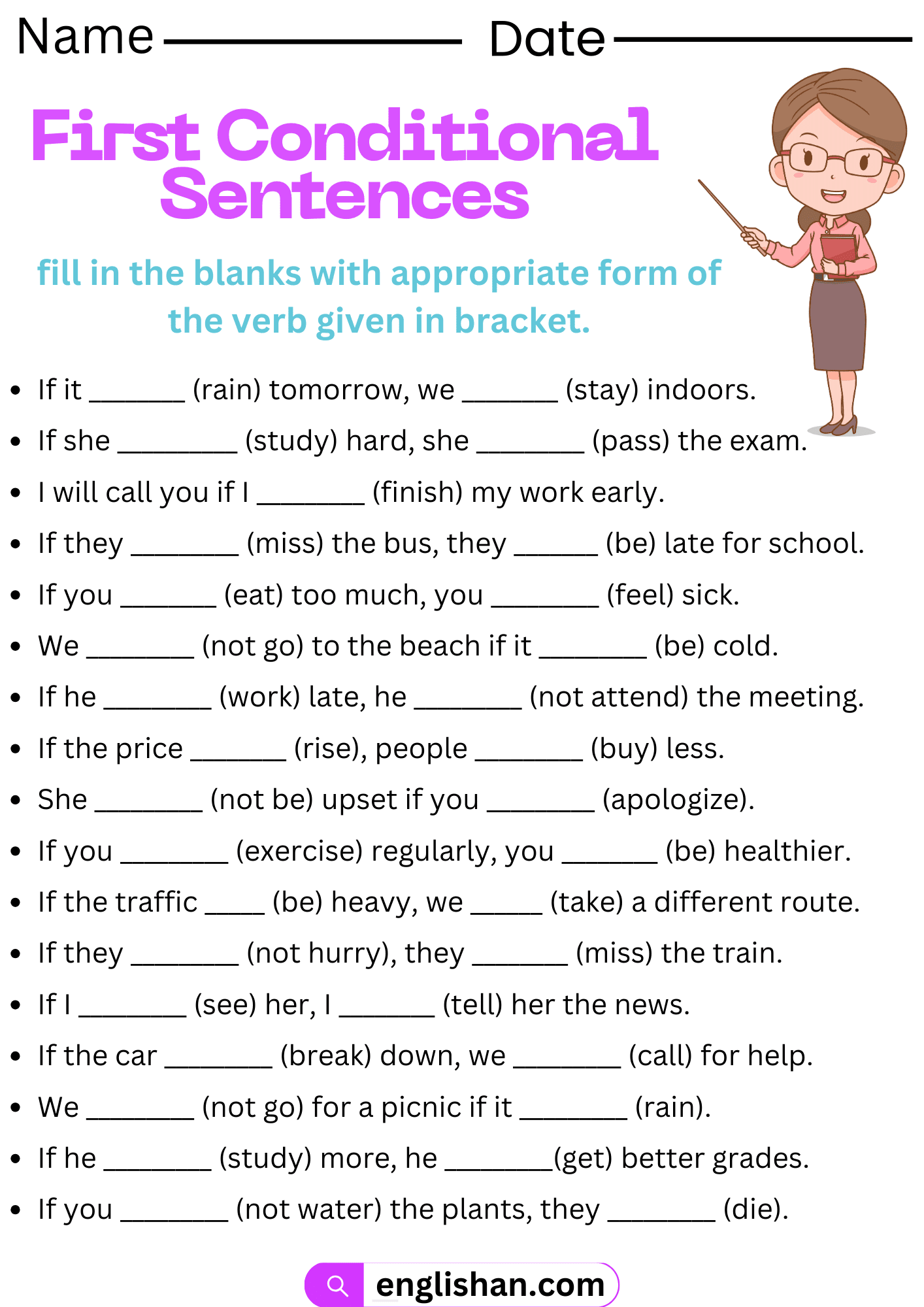
Worksheet 2: Answer of following questions.
- If it rains tomorrow, what will you do?
- What will happen if you miss the bus?
- If you study hard, how will your grades improve?
- What will you say if your friend arrives late?
- If you win the lottery, what will be the first thing you buy?
- How will you feel if you pass the exam?
- What will happen if you don’t set an alarm for tomorrow morning?
- If your flight is delayed, how will it affect your plans?
- What will you do if you see someone in trouble on the street?
- If you don’t water the plants, what will happen to them?
- How will you react if your favorite team loses the championship?
- What will you do if your phone battery dies while you’re out?
- If you forget your friend’s birthday, how will you make it up to them?
- How will your life change if you get a promotion at work?
- If you don’t exercise regularly, what will be the consequences?
- What will you say if your parents give you a surprise visit?
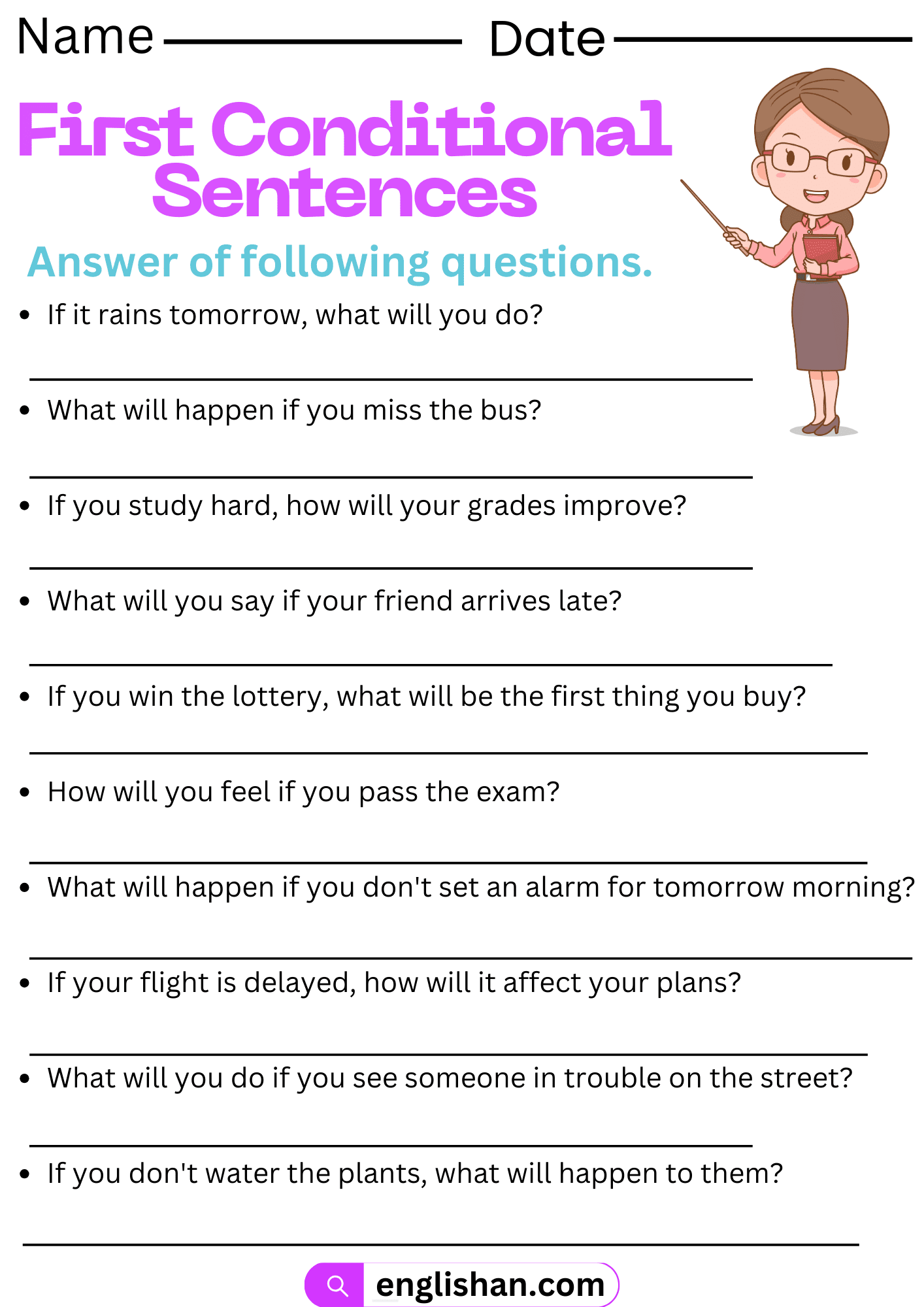
Answers of Worksheet 1:
- rains , will stay
- studies , will pass
- finish
- miss , will be
- eat , will feel
- won’t go , is
- works won’t attend
- rises , will buy
- won’t be , apologize.
- exercise , will be
- is , will take
- don’t hurry, will miss
- see , will tell.
- breaks , will call
- won’t go , rains
- studies , will get
- don’t water , will die
- won’t , be sets
- snows , will build
- don’t leave , will miss
- don’t listen , will miss
- will buy , breaks
- don’t study , will fail
- doesn’t forget , will not be
- will have , is
Answers of Worksheet 2:
- Stay indoors and read.
- Take a taxi to work.
- Grades improve, maybe an A.
- Ask why and express concern.
- Buy a new car.
- Treat myself to dinner.
- Oversleep, be late.
- Disrupts schedule, might miss connecting flight.
- Offer help or call for assistance.
- Wither and die.
- Disappointed but still support.
- Find a charging station or ask for a charger.
- Apologize, plan belated celebration.
- Life improves, consider a vacation.
- Gain weight, decline in health.
- Thrilled, spend quality time.
FAQs
The first conditional is used to talk about real or possible situations in the future. It describes things that might happen if a certain condition is met.
The structure is:
If + present simple, will + base verb
Example: If it rains, I will stay home.
Here are 12 examples of first conditional sentences:
1. If it rains, I will stay home.
2. If you study hard, you will pass the exam.
3. If I see her, I will tell her.
4. If we leave now, we will catch the train.
5. If they invite us, we will go to the party.
6. If I finish my homework early, I will watch TV.
7. If you eat too much candy, you will feel sick.
8. If the sun shines, we will go to the beach.
9. If he does his work, he will get a reward.
10. If I find your keys, I will call you.
11. If you help me, I will finish faster.
12. If we drive carefully, we won’t have an accident.
The 1st, 2nd, and 3rd conditionals are used to talk about different types of situations:
1. 1st Conditional: Real future situations.
Example: If it rains, I will stay home.
2. 2nd Conditional: Unreal or unlikely present/future situations.
Example: If I had a car, I would drive to work.
3. 3rd Conditional: Unreal past situations.
Example: If I had studied, I would have passed the test.
Here’s a simpler explanation of the first conditional with “might”:
First Conditional:
1. If + present simple, might + base verb.
Example:
2. If it rains, I might stay home.
This means: “If it rains (a possible thing), there’s a chance I will stay home.” But “might” means it’s not certain, just a possibility.
You May Also Like
